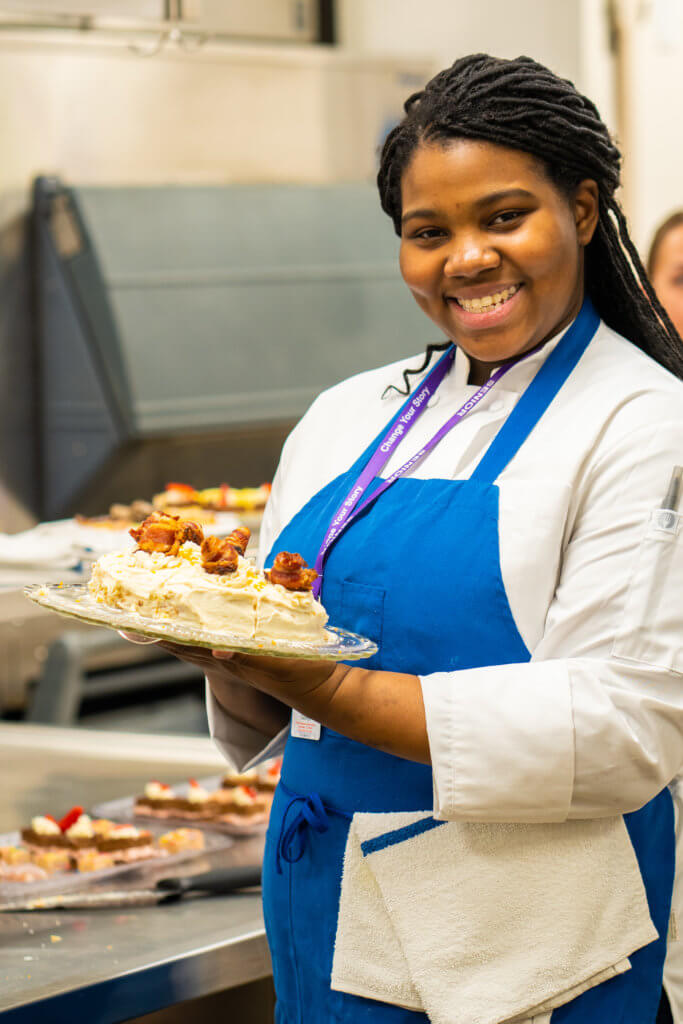
During Career Technical Education (CTE) Month, Learn4Life’s culinary arts pathway students are baking a cake to celebrate – literally. Learn4Life, a network of nonprofit schools that helps at-risk students earn a diploma and receive job skills, began incorporating CTE in its curriculum almost a decade ago to help students stay engaged in school and graduate with valuable life skills.
Its culinary arts pathway in Lancaster, Calif. has proven to be one of the more popular CTE courses among students. This is good news with 1.7 million new jobs expected to be created in the industry by 2025, according to the National Restaurant Association.
Teachers find that Learn4Life students in CTE courses are more engaged in school overall and perform better in all their classes, especially culinary arts. “We see such a tremendous growth in our students’ ability to handle social-emotional issues,” said Chef Shanel Burnias, who heads up the program. “Cooking provides immediate positive reinforcement and they get a sense of accomplishment every time they learn a new skill or create something delicious. As soon as they put on their aprons, we see their faces light up and their self-esteem rise.”
Students meet weekly in the school’s industrial kitchen for a five-hour session, plus additional lab and tutorials, throughout the 32-week program.
- The first phase includes food safety standards and culinary fundamentals, like knife skills and cooking methods for savory foods. They poach, braise, sauté, learn to cut up a chicken, and master soups and sauces.
- Phase two is all about baking, learning to make everything from crepes and brioche to pies, tarts and artisanal breads.
- The final session focuses on how to run a restaurant. They practice interviewing for a chef’s job and learn how to do front-of-the-house management, cost analysis, budgeting, profit margins and customer service. All while they are completing their other coursework to graduate.
Burnias points out that food prep and cooking is only part of what the students are learning. They develop life skills like teamwork, planning and time management, that will stay with them regardless of what industry they choose. “I had two students who were so shy they barely said a word at the beginning of the course. But a few weeks along and they were talking and getting excited about the dishes they created,” she said. “I think of all the students as my angels. The more challenging the assignments, the harder they work.”
Learn4Life culinary students get a reality check on what it’s like to work in foodservice, which can be demanding, hectic and under time constraints. So the students must work in teams in a timed session, and their projects are then judged by the chef instructor and sampled by fellow students for feedback. Field trips give them a taste of different sized and quality restaurants, and other areas of foodservice, like a recent visit to the Huy Fong sriracha factory. Find out more about the many CTE pathways at Learn4Life.
